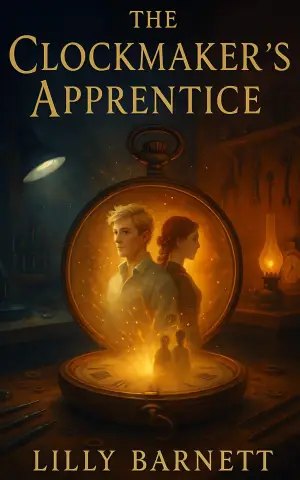Book Review: The Girls of Good Fortune by Kristina McMorris
When I first stumbled across Kristina McMorris’s latest work, The Girls of Good Fortune, I felt an undeniable pull. As someone who adores historical fiction, I’ve always enjoyed the rich narratives that McMorris spins around lesser-known historical events. With a backdrop set in 1888 Portland amidst a whirlwind of Asian-American struggles and societal constraints, I knew this novel would take me on a deep dive into a period often overshadowed by more well-trodden tales. Little did I know, this journey would be both heart-wrenching and illuminating.
Our protagonist, Celia, captures your heart from the very beginning. Waking up confined in an underground cell, she embodies resilience, raw vulnerability, and an acute sense of awareness, immediately setting the tone for a gripping narrative. Her abduction and subsequent reflection on her life—a maid to the mayor turned unwilling crew member on a shipping vessel—unfold layers of grit and perseverance. What struck me significantly is Celia’s personal battles against not only the confines of her gender but also the prevailing racial injustices of her time. For readers, there’s a sense of urgency in her quest to return to the life she once loved, a familiarity that resonates deeply with anyone who has grappled with the feeling of losing everything.
McMorris masterfully employs a dual timeline, juxtaposing Celia’s later struggles with her earlier dilemmas. This narrative technique paints a vivid picture of how past traumas shape current realities, and I found myself reflecting on the intricate tapestry of experiences that define individuals. The epilogue, set in 1995, was a brilliant touch, allowing us to not just see the fruits of Celia’s journey but to understand how history reverberates through generations.
What I’ve always admired about McMorris’s writing is her ability to transport readers into the heart of her meticulously researched settings. The fluidity of her prose kept me engaged; the pacing was just right, encouraging me to savor the moments while still feeling the urgency of Celia’s plight. Through her passionate storytelling, McMorris raises awareness about the anti-Chinese sentiment that permeated this era—a narrative that often gets relegated to the sidelines. Her heritage, as an Asian writer, shines through, adding layers of authenticity and depth that make Celia’s story all the more compelling.
One particular moment stuck with me: Celia’s resolve to fight not just for herself but for her community. “I will not be their pawn,” she declares, encapsulating the book’s essence of resistance against systemic oppression. It’s powerful messages like these that remind us literature can indeed be a mirror reflecting societal concerns, making The Girls of Good Fortune not only a captivating read but one with significant relevance for our contemporary landscape.
If you’re drawn to stories that challenge the status quo and evoke empathy for marginalized voices, this book is a must-read. Historical fiction enthusiasts eager to explore narratives beyond World War Two will find a rich, rewarding experience in Celia’s journey. As for me, I walked away with a renewed sense of appreciation for the complex tapestry of our shared history and a profound connection to the struggles of women like Celia, reminding us all of our capacity to rise against adversity.
Overall, The Girls of Good Fortune isn’t just a story; it’s a necessary conversation, one that lingers long after the last page is turned. I can’t wait to see what narratives Kristina McMorris brings to life next, but this one will stay with me for years to come.
Discover more about The Girls of Good Fortune on GoodReads >>






